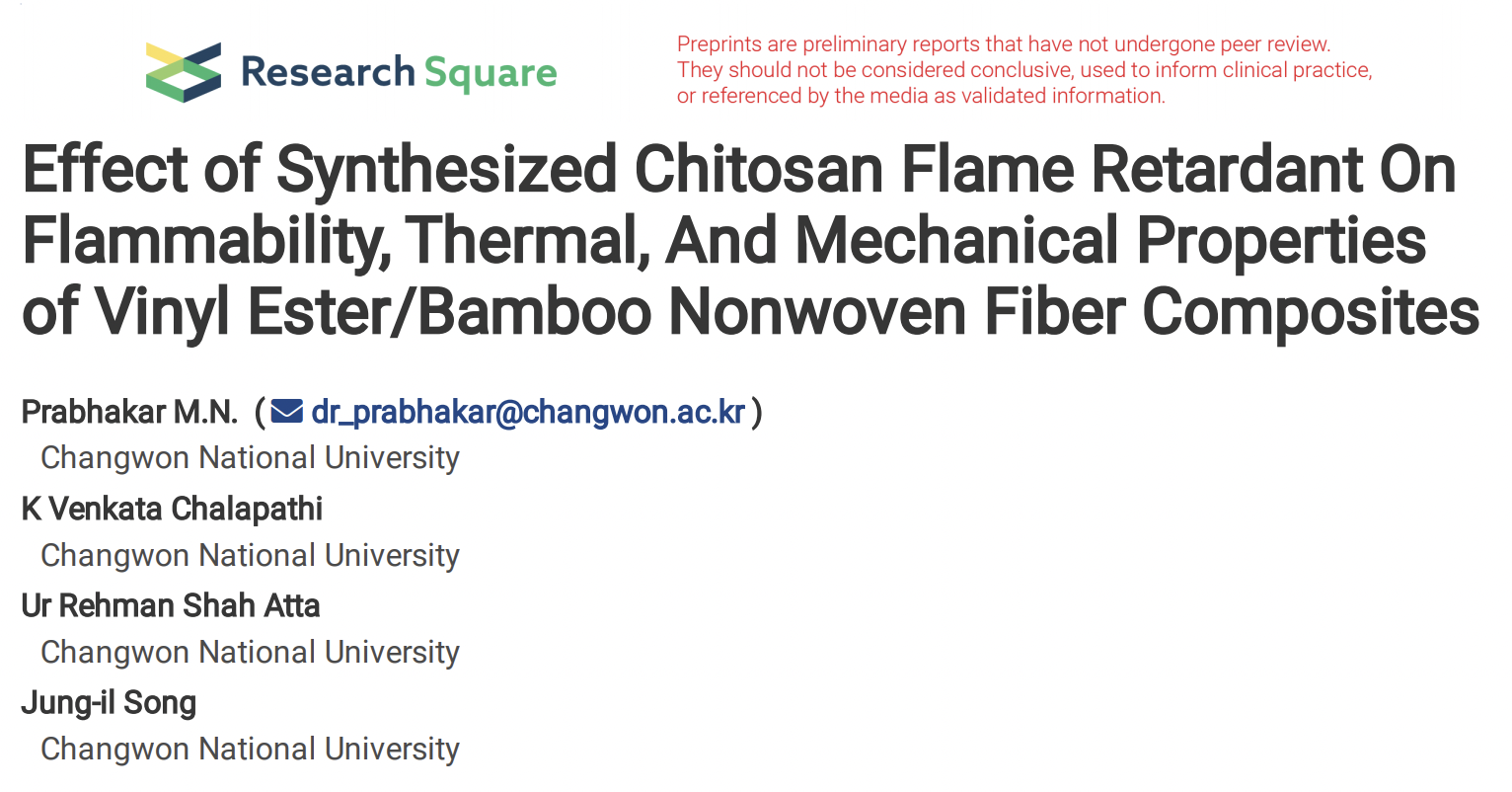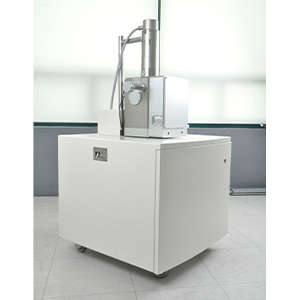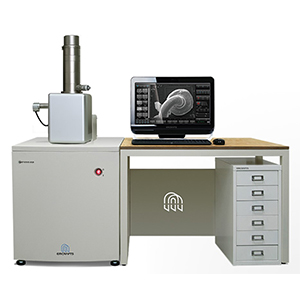In this study, chitosan-based bio-flame retardant additive (referred to as NCS) was prepared by altering the chitosan (CS) chemically with silica (S) via ion interchange reaction and studied the effect on flame retardant, thermal and mechanical properties of vinyl ester/bamboo fiber (VE/BF) composite manufactured by the vacuum assisted resin transfer molding (VARTM) process. Fourier transform infrared spectroscopy (FTIR), scanning electron microscopy (SEM) and X-ray diffraction (XRD) analysis used to characterize the NCS. The spectral results revealed a new peak at 1560 cm-1 corresponding to NH3+–-O Si, bring up the interactive bond between CS and S. SEM, and XRD showed the diverse morphology (coarse surface), and significant decrement in the intensity of diffraction patterns respectively support further the formation of NCS. The heat release rate of NCS decreased significantly by
76%, and residual char increased by 47% compared with chitosan. The flame retardant and thermal behavior of NCS-VE/BF composites were examined by UL-94 standards, micro and cone calorimeter and thermogravimetric analysis. The results showed a delay in burning time in UL-94, enhanced LOI % and decrement of peak heat release rate and total heat release rate compared to pure composites by 32, 14, and 18%, respectively. The residual char increased by 47%. The mechanical properties also improved satisfactorily. Overall, the synthesized NCS could be suitable for the fabrication of sustainable flameretardant natural fiber composite without deterioration of mechanical properties that are suitable for substructural parts in engineering applications.






